Syllabus
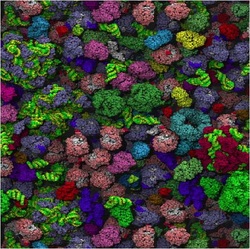
The purpose of this course is two-fold.
Conceptually, we will explore the problem of protein folding and protein aggregation, starting at the molecular level to look at the way chaperones help proteins fold and remain in their native state, proceeding to the cellular network of protein folding quality control pathways and stress responses, and going all the way up to aging organisms and specific tissues that are affected by the proteotoxic stress of protein misfolding and aggregation. We will cover research topics in the field of folding and aggregation that span several model systems and emerging methodologies.
In addition, from the practical side of things, the purpose of this course is to develop our ability to process and integrate scientific literature, and to communicate ideas to others in scientific writing and scientific talks.
Conceptually, we will explore the problem of protein folding and protein aggregation, starting at the molecular level to look at the way chaperones help proteins fold and remain in their native state, proceeding to the cellular network of protein folding quality control pathways and stress responses, and going all the way up to aging organisms and specific tissues that are affected by the proteotoxic stress of protein misfolding and aggregation. We will cover research topics in the field of folding and aggregation that span several model systems and emerging methodologies.
In addition, from the practical side of things, the purpose of this course is to develop our ability to process and integrate scientific literature, and to communicate ideas to others in scientific writing and scientific talks.
Announcements
We will be meeting in the seminar room 1-402 (note that this is different from the room specified in the course listing).
Course organization
The course will be organized as an advanced seminar for graduate students and 3rd year undergraduates, though other students are more than welcome to apply. We will meet once a week for two hours.
Every week I will assign one "mandatory" review article, one "mandatory" research article for presentation and discussion, and another research article that will be presented in 15min by another student. Additional useful articles will be posted as well. I will upload the PDFs of the articles to this site. There will be a weekly assignment to write an "abstract" summarizing the research article assigned for the discussion. There will be a strict 250 word limit for the abstract, which will be graded for being succinct, accurate, and thorough.
During the first 30min I will give a brief "chalk" presentation about the discussion topic for the following week. During the second 30min two students (different students every week) will give a short power-point presentation about the article assigned for discussion. For the remaining time, we will discuss the article together.
The final project will be a 15 min presentation on a sub-field of your choice with a proposed experimental program. We encourage students to be creative in choosing the topic. There will be an option of a power-point presentation or a "chalk-talk." Due to the number of students in the course, the talks will have to be short (15min). Therefore, we will also ask the students to submit a 1-2 page summary/proposal to go along with the presentation.
The grade will consist of:
15% 1st presentation
35% 2nd presentation and proposal
40% average of weekly abstracts (the lowest grade will be dropped)
10% participation in weekly discussions
Every week I will assign one "mandatory" review article, one "mandatory" research article for presentation and discussion, and another research article that will be presented in 15min by another student. Additional useful articles will be posted as well. I will upload the PDFs of the articles to this site. There will be a weekly assignment to write an "abstract" summarizing the research article assigned for the discussion. There will be a strict 250 word limit for the abstract, which will be graded for being succinct, accurate, and thorough.
During the first 30min I will give a brief "chalk" presentation about the discussion topic for the following week. During the second 30min two students (different students every week) will give a short power-point presentation about the article assigned for discussion. For the remaining time, we will discuss the article together.
The final project will be a 15 min presentation on a sub-field of your choice with a proposed experimental program. We encourage students to be creative in choosing the topic. There will be an option of a power-point presentation or a "chalk-talk." Due to the number of students in the course, the talks will have to be short (15min). Therefore, we will also ask the students to submit a 1-2 page summary/proposal to go along with the presentation.
The grade will consist of:
15% 1st presentation
35% 2nd presentation and proposal
40% average of weekly abstracts (the lowest grade will be dropped)
10% participation in weekly discussions
Weekly Schedule
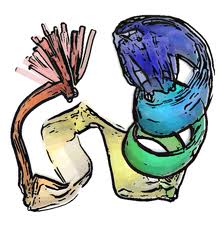
February 20
Introduction to Seminar course
Protein Folding - The Life and Death of Proteins
Exiting the Ribosome
Co-translational folding and degradation
Chaperones and Chaperonins
Folding in compartments (Cytosol and ER)
Proteasomal Degradation
Misfolding and Marginal stability
Introduction to Seminar course
Protein Folding - The Life and Death of Proteins
Exiting the Ribosome
Co-translational folding and degradation
Chaperones and Chaperonins
Folding in compartments (Cytosol and ER)
Proteasomal Degradation
Misfolding and Marginal stability
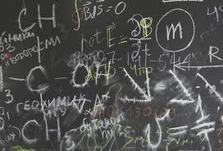
March 4 - second hour
How to Give Scientific Presentations - Thinking about Talking
How to Give Scientific Presentations - Thinking about Talking
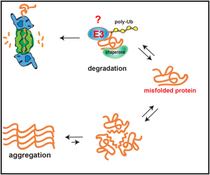
March 11
Protein Folding Quality Control - To Fold or to Destroy
Chaperone systems and Quality Control
Small Heat Shock Proteins
Ubiquitination of misfolded proteins
Quality Control in Compartments (Cytosol, Nucleus, ER)
Review (Goldberg)
Assigned Paper for Presentation (Gardner Cell)
Assigned Paper for Summary and Discussion (Liu Qian MolCell)
Suggested Paper (England Structure)
Suggested Review (Gierash)
Suggested Review (QC review)
Protein Folding Quality Control - To Fold or to Destroy
Chaperone systems and Quality Control
Small Heat Shock Proteins
Ubiquitination of misfolded proteins
Quality Control in Compartments (Cytosol, Nucleus, ER)
Review (Goldberg)
Assigned Paper for Presentation (Gardner Cell)
Assigned Paper for Summary and Discussion (Liu Qian MolCell)
Suggested Paper (England Structure)
Suggested Review (Gierash)
Suggested Review (QC review)
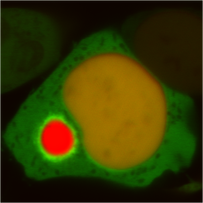
March 18
Protein Aggregation - Sticking Together
All proteins can aggregate
Amyloids
Inclusions
Yeast Prions
Review
Assigned Paper for Presentation (Morimoto)
Assigned Paper for Summary and Discussion
Suggested Paper
Suggested Paper
Suggested Paper
Suggested Review
Protein Aggregation - Sticking Together
All proteins can aggregate
Amyloids
Inclusions
Yeast Prions
Review
Assigned Paper for Presentation (Morimoto)
Assigned Paper for Summary and Discussion
Suggested Paper
Suggested Paper
Suggested Paper
Suggested Review
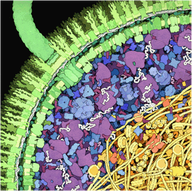
April 8
Spatial Organization of the Cytosol and its Functions - More Than Just a Bag of Enzymes
Assigned Paper for Summary and Discussion
Review: Ellis - Molecular crowding
Assigned Paper for Presentation
Review (Zhou)
Review (Gierash)
Recommended Paper
Spatial Organization of the Cytosol and its Functions - More Than Just a Bag of Enzymes
Assigned Paper for Summary and Discussion
Review: Ellis - Molecular crowding
Assigned Paper for Presentation
Review (Zhou)
Review (Gierash)
Recommended Paper
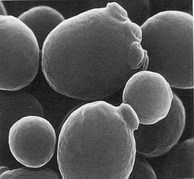
April 29
Spatial Quality Control - If You Can't Beat Them, Get Rid of Them
Asymmetric inheritance
Aging in yeast
Hsp104
Assigned paper for Summary and Discussion
Assigned Paper for Presentation
Recommended Paper
Assigned Review
Spatial Quality Control - If You Can't Beat Them, Get Rid of Them
Asymmetric inheritance
Aging in yeast
Hsp104
Assigned paper for Summary and Discussion
Assigned Paper for Presentation
Recommended Paper
Assigned Review
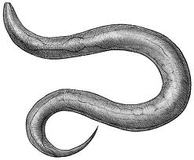
May 6
Proteostasis - When Things Go Wrong
Global folding and marginal stability
Folding buffers
Assigned paper
Assigned paper for Presentation (Meriin and Sherman 2012)
Recommended paper
Review
Proteostasis - When Things Go Wrong
Global folding and marginal stability
Folding buffers
Assigned paper
Assigned paper for Presentation (Meriin and Sherman 2012)
Recommended paper
Review
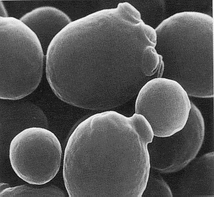
May 13
Aging - Aging Old Question
Assigned paper for summary and discussion
Assigned paper for presentation
Recommended paper
Stress and aging
Aging aggregation review
Stress management review
Insulin signaling Review
Aging - Aging Old Question
Assigned paper for summary and discussion
Assigned paper for presentation
Recommended paper
Stress and aging
Aging aggregation review
Stress management review
Insulin signaling Review
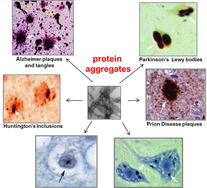
May 20
Neurodegenerative Disease Models
Assigned Paper for Presentation and Summary
Assigned Paper for Presentation Only
Assigned Additional Paper
Revevant Review (Bennett)
Review Lansbury and Lashuel
Neurodegenerative Disease Models
Assigned Paper for Presentation and Summary
Assigned Paper for Presentation Only
Assigned Additional Paper
Revevant Review (Bennett)
Review Lansbury and Lashuel
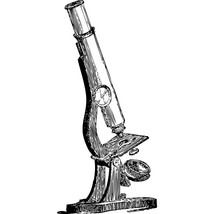
May 27
Live Cell Imaging - A Movie is Worth a Thousand Pictures
Paper for Summary and Discussion
Paper for Presentation
Review (Shamir and Kaganovich)
Recommended Paper
Recommended paper
Review (Ankerhold)
Review (Lippincott-Shwartz)
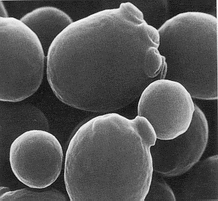
June
Student presentations
Student presentations
